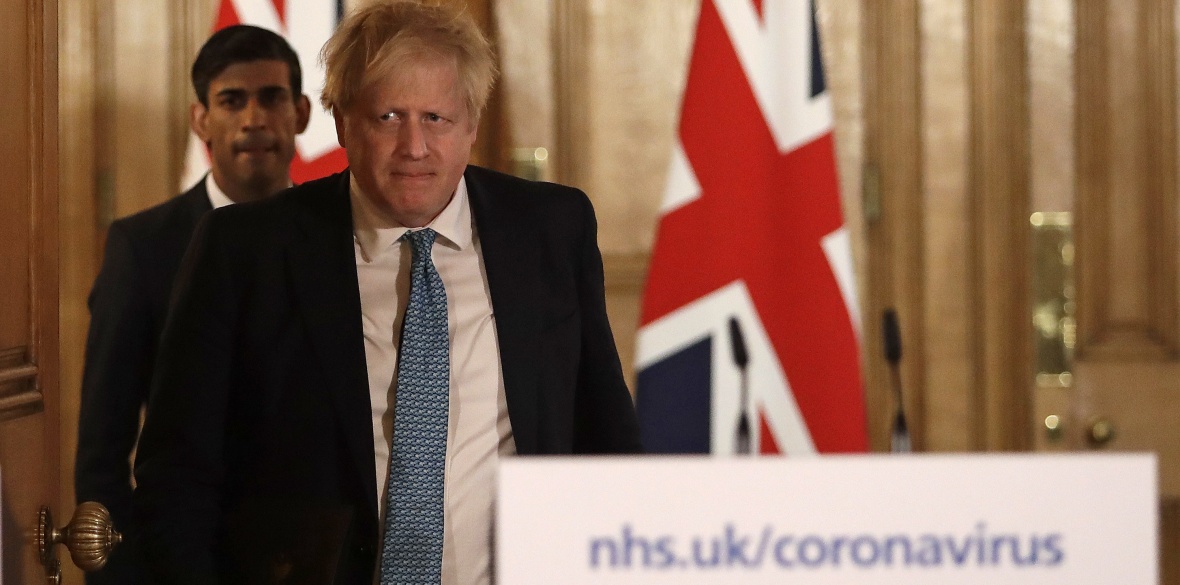This is the last article you can read this month
You can read more article this month
You can read more articles this month
Sorry your limit is up for this month
Reset on:
Please help support the Morning Star by subscribing here
BORIS JOHNSON has nowhere to hide now that Britain’s coronavirus death toll has surpassed Italy’s — making us the worst-hit country in Europe and the second in the world.
The Prime Minister’s blasé assurance in March that we were “extremely well prepared” to handle the pandemic cannot be excused.
We were extremely unprepared for such an outbreak.
If he did not realise that, it was not for want of evidence. It was down to his own laziness — not bothering to attend emergency Cobra meetings on the situation — and arrogance, assuming that a wealthy country like Britain could afford not to listen to warnings from a “Third World” nation like China.
Johnson has made a career from bluster and sleight of hand. Few of us could have imagined, before lockdown encompassed half the world, the sweeping changes to our lives that would be required to stop Covid-19 ravaging the population.
Johnson will be gambling on our acceptance that the government could not have foreseen it either. He will claim that ministers took decisive action as soon as they were aware of the danger and count on the sympathy he attracted for contracting the virus himself to stave off any public backlash.
But it is not true. And it was not just Beijing whose warnings were ignored, when Downing Street still had time to save the lives of many of the 32,000 UK residents who — at the certainly underestimated official count — have now perished from the virus.
It was not even “just” the World Health Organisation. Ministers have been aware since at least 2016 that their savage austerity programme left the NHS in no fit state to handle a pandemic.
Their own Exercise Cygnus drill came to exactly that conclusion.
It did not prompt any increase in funding or replenishing of personal protective equipment supplies.
It did not stop ministers airily dismissing concerns raised by the Labour Party, health unions and campaigns such as Keep Our NHS Public or Health Emergency around NHS funding, worsening bed shortages, crippling staff vacancies, a “permanent winter crisis” that even NHS management were sounding the alarm over by early 2017.
Even as coronavirus exposes the glaring inadequacy of running public services for private profit, with the state having to step in and take over rail routes and Royal Mail forcing postal workers to deliver corporate advertising while ignoring proposals to place its unrivalled network at the service of the nation for communications and supply, ministers are pushing the same discredited agenda.
Shamed privateer Serco snapping up call-handling contracts shows that the great NHS privatisation bonanza continues to roll on. Corporate parasites are leeching money from our health service every single day.
That market model is bankrupt. It is no coincidence that the countries least able to protect their citizens from coronavirus are Britain and the United States, the two Western powers which have pursued neoliberal ideology (“Thatcherism” over here, “Reaganomics” over there) longest and most relentlessly.
Countries which dismissed any role for the state in directing the economy or providing services as inefficient (or, when it appeared to outperform privatised models, as “unfair competition” that “distorted the market”); that used international treaties and agencies to try to force open the economies of others to corporate exploitation; that sniffed at the “backwardness” of states that were less quick to deregulate markets and sell off public assets and that identified all spare capacity with waste.
The miserable results of that 40-year crusade for what Johnson calls the “beneficial magic” of free trade, faith in which he insisted as recently as February should not be shaken by “panic” over coronavirus, are told in a pandemic death toll unrivalled in Europe, higher than that suffered by Italy, Spain or France.
Britain was not prepared because it was saddled with an ideology hostile to planning and investment. An ideology that must now bite the dust.












